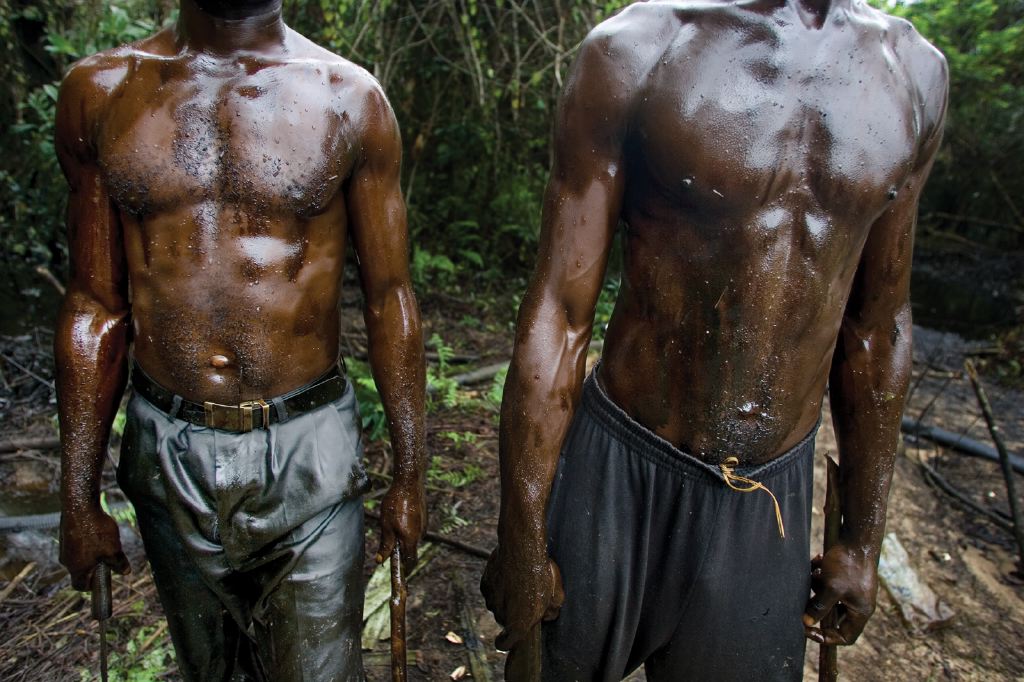In this Arsenal For Democracy mini-series, we propose new, progressive Constitutional rights. Part IV: A right to safe air and water, by Bill.
Protecting the environment is not an abstract concept about saving rainforests or polar bears, although these are important in their own way. Environmentalism is fundamentally about people. Whether or not environmental safety is maintained has a tangible, daily effect on millions of lives. Poisoned air and water is responsible for the premature deaths of tens of thousands of Americans each year. The air we breathe and the water we drink must be free from contaminants. That is an inalienable human right.
Sadly, too often, our society has allowed dangerous pollution to be released into our air and water, with enormous health consequences. Disproportionately, those impacts have fallen on low-income and minority individuals and communities. Justice for these crimes has been intermittent at best.
We need to ensure — swiftly and fairly — the elimination of pollution, meaningful and substantial compensation for those affected, and punishment for those responsible.
Environmental public safety should not be taken lightly or be treated as an afterthought corrected by an occasional minor fine. Just as we have taken seriously the public health threat from smoking, so too must we take seriously the daily public health consequences of poor regulation and poor enforcement of environmental public safety.
According to the American Lung Association, the human and financial costs to our society are clear:
Particle pollution also diminishes lung function, causes greater use of asthma medications and increased rates of school absenteeism, emergency room visits and hospital admissions. Other adverse effects can be coughing, wheezing, cardiac arrhythmias and heart attacks. According to the findings from some of the latest studies, short-term increases in particle pollution have been linked to:
– death from respiratory and cardiovascular causes, including strokes;
– increased mortality in infants and young children;
– increased numbers of heart attacks, especially among the elderly and in people with heart conditions;
– inflammation of lung tissue in young, healthy adults;
– increased hospitalization for cardiovascular disease, including strokes and congestive heart failure;
– increased emergency room visits for patients suffering from acute respiratory ailments;
– increased hospitalization for asthma among children; and
-increased severity of asthma attacks in children.
By contrast, taking action pays huge dividends:
– Looking at air quality in 545 counties in the U.S. between 2000 and 2007, researchers found that people had approximately four months added to their life expectancy on average due to cleaner air. Women and people who lived in urban and densely populated counties benefited the most.
– Another long-term study of six U.S. cities tracked from 1974 to 2009 added more evidence of the benefits. Their findings suggest that cleaning up particle pollution had almost immediate health benefits. They estimated that the U.S. could prevent approximately 34,000 premature deaths a year if the nation could lower annual levels of particle pollution by 1 µg/m^3
Our federal, state, and local governments must guarantee and secure the people’s right to a habitable world, at present and in future, via enforceable law and regulation. In doing so, particularly by transforming our energy and transportation sectors to cleaner modes, we will ensure safe and clean air and water.
Our nation’s constitution ought to enshrine this common-sense governing principle as an amendment. That might read something like this:
“Every person has the right to safe and clean air and water. Congress and the states shall make such laws as are necessary to secure this right to all residents. The federal executive and judiciary and the governments of the states shall implement and enforce these provisions by appropriate action.”





